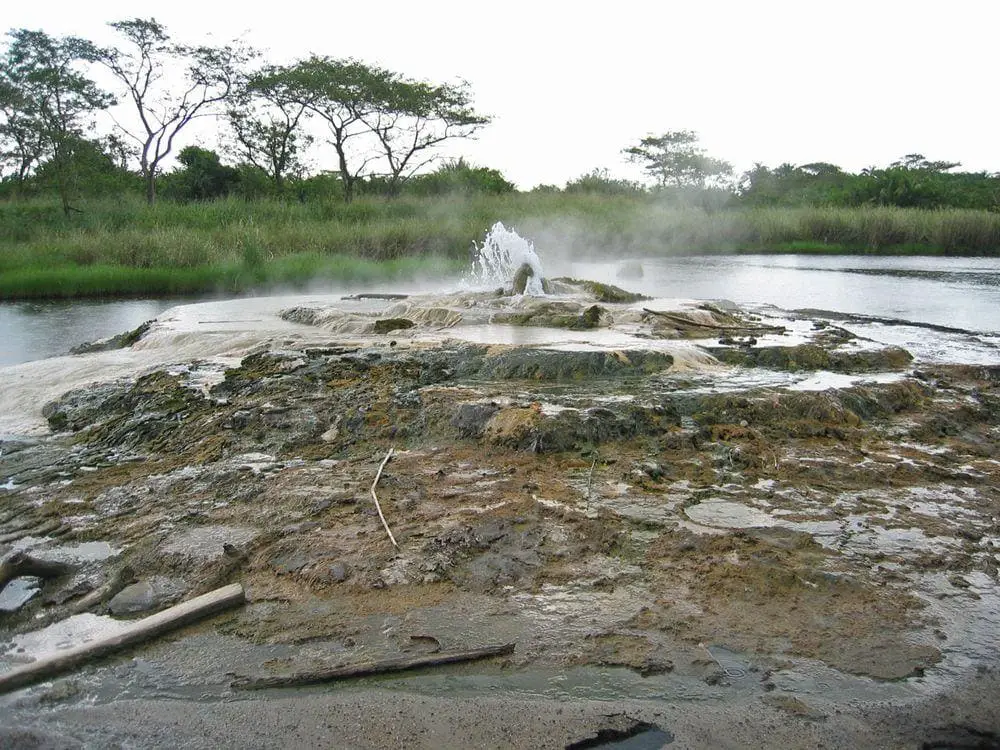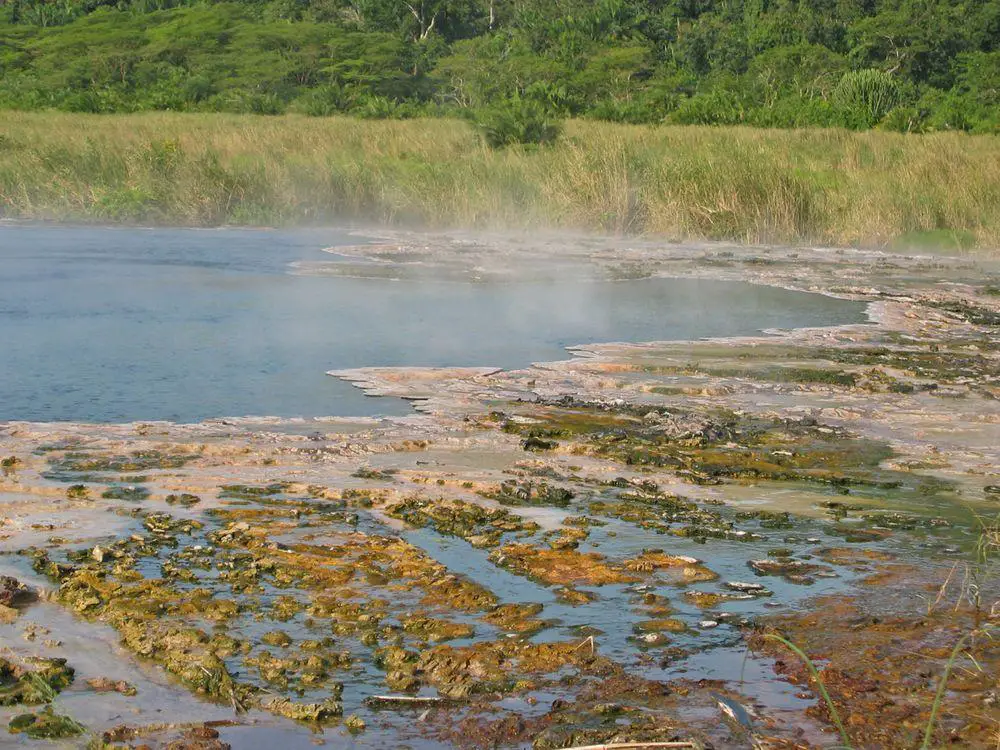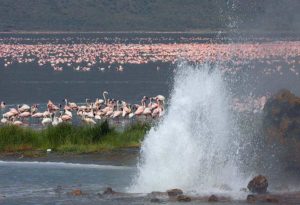Thermal springs 🢔 Springs 🢔 Geological wonders 🢔 Categories of wonders
Wonder
Buranga Hot Springs
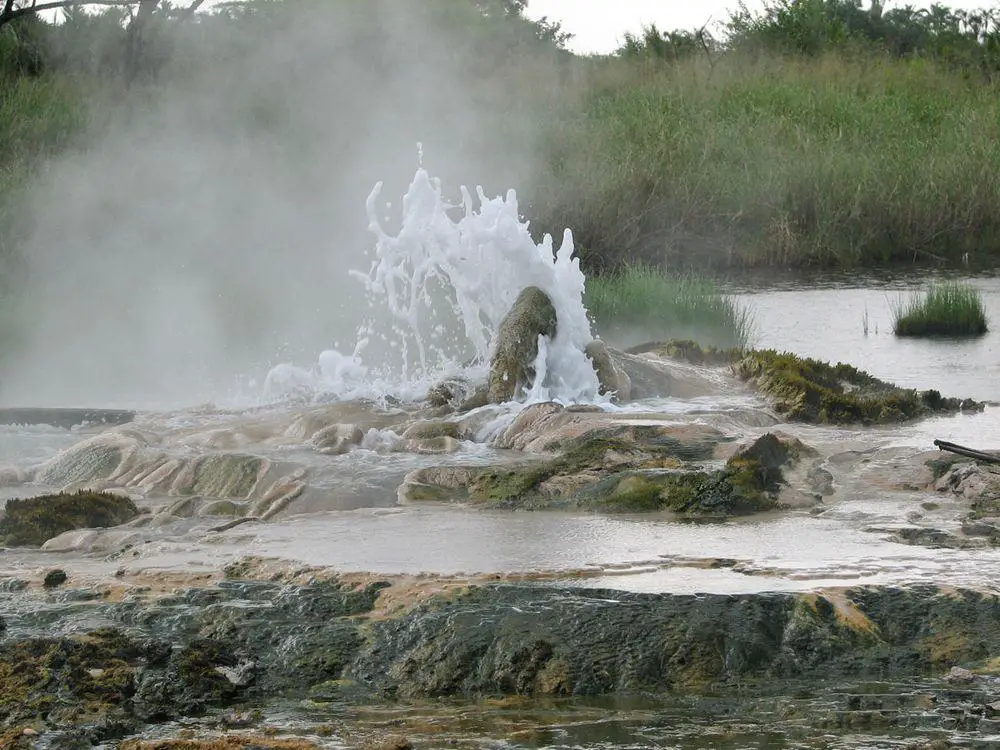
 In short
In short
Some of the most amazing hot springs in East Africa are Buranga Hot Springs. Currently here are flowing 37 springs that receive the geothermal heat from the deep faults of East African Rift System. One of the springs – Mumbuga spring – is a perpetual spouter – a permanent small fountain.
 42.3%
42.3%
GPS coordinates
Location, address
Alternate names
Map of the site
If you see this after your page is loaded completely, leafletJS files are missing.
 In detail
In detail
Lowland rainforest
Buranga springs are located close to Ruwenzori Mountains, at the base of the Bwamba escarpment. This remote corner of Uganda is covered with the only remaining East African lowland tropical rainforest. This forest is especially rich with species – here meet animals and plants of western and eastern tropical Africa.
Three groups of hot springs
Buranga springs have formed their own small ecosystems in this lush forest attracting numerous birds (due to swamps around the springs) and animals (due to salt coming out from the depths of Earth). In the springs have been found endemic microorganisms – two previously unknown strains of thermophilic Geobacillus bacteria.
There are three separate groups of springs, located some 700 m from each other.
Nyansimbe spring (Nyasinbi, tourist guides call it – male pool) has formed a swamp and is acessible only in dry season. This spring has developed a carbonate cone with clear pool of hot water (86°C) in it. Pool has a diameter of 30 m, depth is more than 5 m. Flow rate is 15 l/s.
Mumbuga springs (Mubunga, named female pools by tourist guides) are numerous hot springs in area 60 x 40 m, all springs are depositing carbonates. These springs also can be accessed in dry season. One spring has built 1.5 m tall travertine cone with terraces. Water here forms some 50 cm high fountain, rising above the pool. Water is bubling and emanating gases. Flow rate of these springs is 6.5 l/s. Temperature of spring reaches 98.4°C.
Kagoro springs are the southernmost. They take an area of 50 x 15 m, enclosed by rainforest. Here the springs also have built up to 1.5 m high travertine cones. At the base of the largest travertine cone are sulfur deposits – the only ones in Buranga. Temperature of water is 60 – 91° C.
Rift and earthquakes
Geothermal activity of Buranga springs is linked to the tectonic activity of rift (Albertine graben – part of the East African Rift System). The hot water here might be rising along the active faults of Earth’s crust.
Scientists have noticed that after each earthquake hot springs are changing. It happens that some of the older springs disappear and new ones start.
References
- Norbert Ochmann, Michael Lindenfeld, Paula Barbirye, Christopher Stadtler, Microearthquake Survey at the Buranga Geothermal Prospect, Western Uganda, Proceedings, Thirty-Second Workshop on Geothermal Reservoir Engineering. Accessed on June 15, 2011.
- Catherine Nyakecho, Preliminary Environmental Impact Assessment for the Development of Buranga Geothermal Prospect, Uganda. 2008. Accessed on June 15, 2011.
Buranga Hot Springs are included in the following article:
 Linked articles
Linked articles
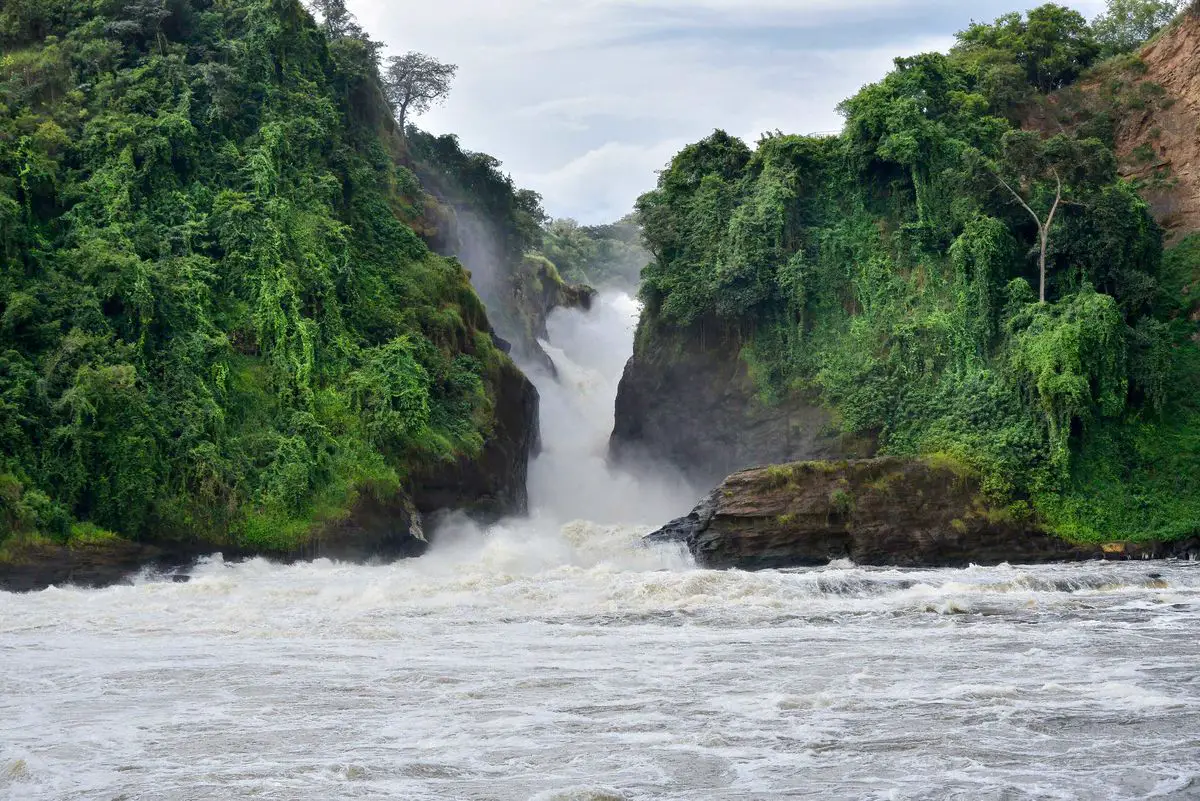
Wonders of Uganda
Uganda can be proud of its very rich natural heritage. The tropical forests here have some of the highest species diversity in Africa, the country has powerful waterfalls and interesting volcanic landforms.
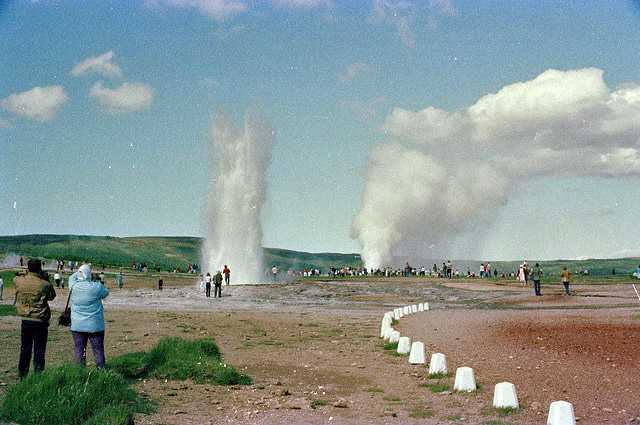
Geysers
Hasty hydrogeologists would say: geysers are thermodynamically and hydrodynamically unstable hot springs. “Normal” people would say – geysers are hot springs that at more or less regular intervals shoot up a fountain of boiling water and steam. Sometimes these fountains are even 100 m tall… or even 450 m!
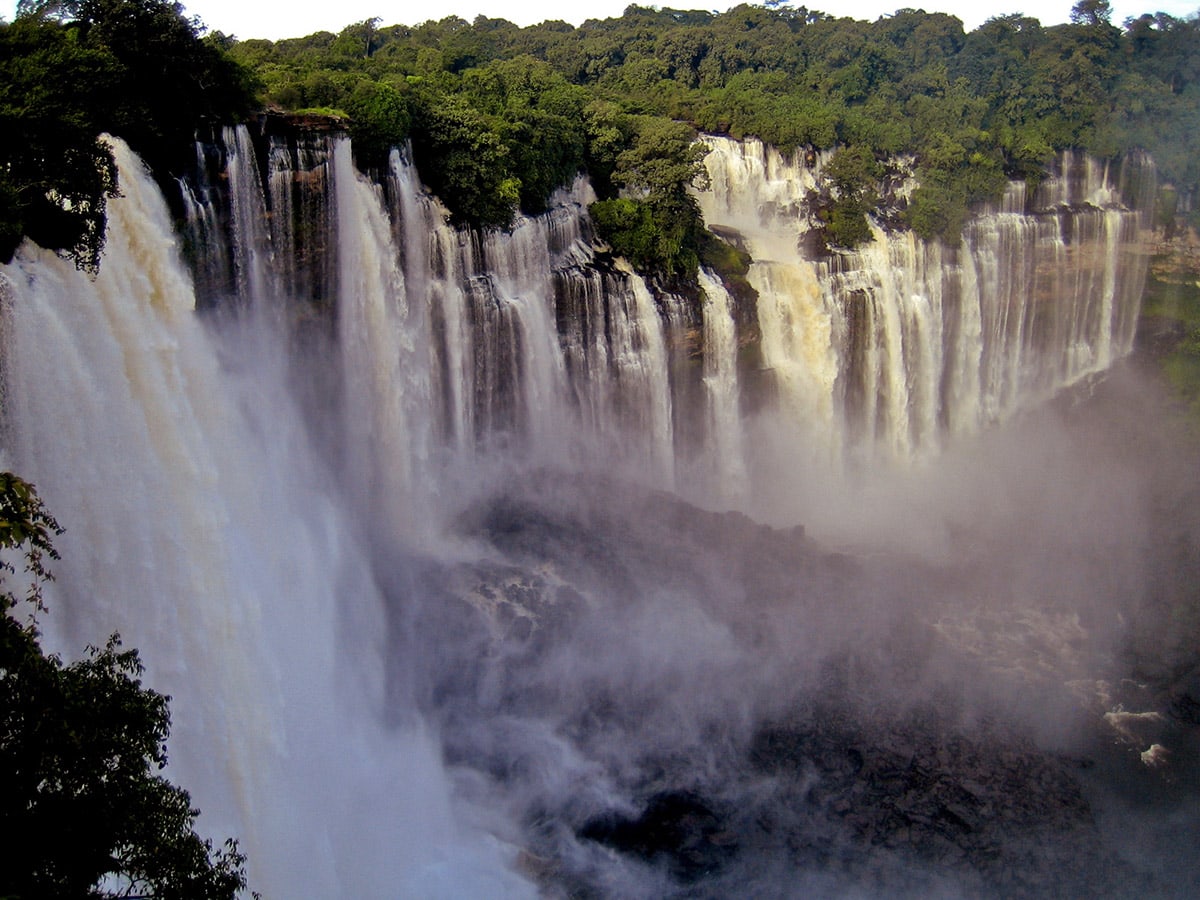
Wonders of Africa
Africa has many outstanding wonders and some of the most surprising ones are the heritage of Egyptian civilization, the vernacular architecture of the Sahel region, tropical ecosystems, and others.
 Recommended books
Recommended books
Uganda (Bradt Travel Guide)
he Bradt Guide to Uganda, now more than 500 pages long, is the definitive travel handbook to this wonderful but oft-neglected destination, not only providing comprehensive background information to its varied national parks, towns and other cultural attractions, but also including detailed reviews of the ever-growing selection of world-class lodges and budget hotels that service them.
Africa’s Top Geological Sites
Africa was the core of the ancient supercontinent Pangaea, and comprises some of the oldest and most extraordinary geology on planet Earth. This detailed and colorful book features 44 of the continent’s most spectacular and interesting ‘geosites’, from Table Mountain in the south to the eroded necks and plugs of the Hoggar region in Algeria; and from the volcanic islands of the Atlantic Ocean to the continental fragments off the African east coast.

